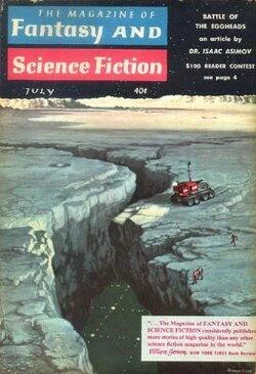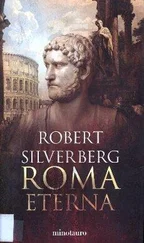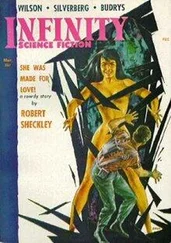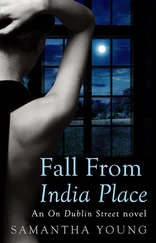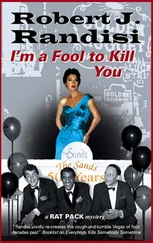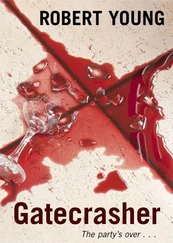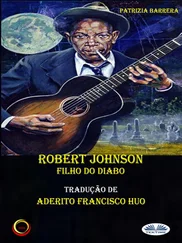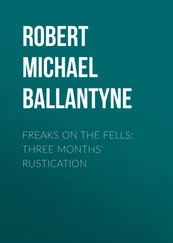Robert Young - To Fell a Tree
Здесь есть возможность читать онлайн «Robert Young - To Fell a Tree» весь текст электронной книги совершенно бесплатно (целиком полную версию без сокращений). В некоторых случаях можно слушать аудио, скачать через торрент в формате fb2 и присутствует краткое содержание. Год выпуска: 1959, Издательство: Mercury Press, Inc., Жанр: Фантастика и фэнтези, на английском языке. Описание произведения, (предисловие) а так же отзывы посетителей доступны на портале библиотеки ЛибКат.
- Название:To Fell a Tree
- Автор:
- Издательство:Mercury Press, Inc.
- Жанр:
- Год:1959
- ISBN:нет данных
- Рейтинг книги:5 / 5. Голосов: 1
-
Избранное:Добавить в избранное
- Отзывы:
-
Ваша оценка:
- 100
- 1
- 2
- 3
- 4
- 5
To Fell a Tree: краткое содержание, описание и аннотация
Предлагаем к чтению аннотацию, описание, краткое содержание или предисловие (зависит от того, что написал сам автор книги «To Fell a Tree»). Если вы не нашли необходимую информацию о книге — напишите в комментариях, мы постараемся отыскать её.
To Fell a Tree — читать онлайн бесплатно полную книгу (весь текст) целиком
Ниже представлен текст книги, разбитый по страницам. Система сохранения места последней прочитанной страницы, позволяет с удобством читать онлайн бесплатно книгу «To Fell a Tree», без необходимости каждый раз заново искать на чём Вы остановились. Поставьте закладку, и сможете в любой момент перейти на страницу, на которой закончили чтение.
Интервал:
Закладка:
Strong forced the food down. He had no appetite. What he really wanted was a drink. Many drinks. But it was too soon. He still had one more cut to go. Then he could drink. Then he could help Blueskies drown the buffalo. On the house. “The Man Who Saved Our Beloved Village.” Fill her up, bartender. Fill her up again. I did not wear my scarlet cloak, bartender. For blood and wine are red, bartender. And blood and wine were on my hands when they found me with the dead, the poor dead woman whom I loved and murdered in her bed…
The mayor had an excellent appetite. His beloved village was safe now. Now he could sit by his fire and count his credits in peace. He wouldn’t have to worry any more about the tree. Strong felt like the little Dutch boy who had thrust his hand in the hole in the dike and saved the burghers’ houses from the sea.
He was glad when the meal was over, glad when Wright leaned back in his chair. “What do you say, Mr. Strong?” “I say let’s get it over with, Mr. Wright.”
They got up. The mayor took his table and chairs, climbed in his gyro-car and joined the other colonists beyond the danger area. The village sparkled in the sunlight. The streets looked as though they had just been scrubbed, and the houses with their elaborate decor, looked like gingerbread fresh from the oven. Strong stopped feeling like the little Dutch boy and started to feel like Jack the Giant-Killer. It was time to chop down the bean-stalk.
He took up his position at the base of the trunk and began the notch. Wright and Suhre stood just behind him. He cut the notch carefully so that the trunk could not fail to fall in the direction Wright had designated. He cut it deep and true, and when he finished, he knew the trunk would obey him. He walked around to its opposite side, Wright and Suhre following. No one spoke. It felt strange to be walking on solid ground. He kept expecting to feel the tug of the saddle-seat against his buttocks, the drag of the limb-line on his belt. The tips of his boots were red, he noticed. Red from the “blood”-drenched grass.
He took up his final position and raised his cutter. He squeezed the trigger. The coward does it with a kiss, he thought, the treeman with a sword. A slit appeared in the fissured trunk. Its edges began to redden. The most modern of swords, manufactured in New America, Venus, and guaranteed never to become dull—
Never to show mercy.
“Blood” ran down the bark, discoloring the grass. The invisible blade of the cutter swung back and forth and back and forth. The two hundred foot stub that once had been a tall proud tree shuddered. Slowly it began its passage to the ground.
There was the prolonged swishing sound of the descent; the thick and thunderous sound of the descent’s end; the quick brief trembling of the earth…
The surface of the massive stump grew bright red in the sunlight. Strong let the cutter fall to the ground. He circled the stump, stumbling now and then, till he came to the building-high length of the fallen stub. It had dropped just as he had wanted it to, its uppermost section landing neatly between two of the rows of houses. But he did not care about the houses any more. He had never cared about them really. He continued walking, gazing steadfastly at the ground. He found her presently, near the edge of the square. He had known he would find her if he looked hard enough. She was sunlight and meadow flower, a transient pattern of grass. He could not see all of her—only her waist and breasts and arms and lovely dying face. The rest of her was crushed beneath the stub: her hips, her legs, her small, leaf-sandaled feet—“Forgive me,” he said, and saw her smile and nod her head, and saw her die; and the grass come back, and the meadow flower, and the sun.
Epilogue
The man who had saved the beloved village placed his elbows on the bar that had once been an altar, in the hotel that had once been a church. “We’ve come to drown the buffalo, mayor,” he said.
The mayor, who in honor of the occasion had taken over the duties of bartender, frowned.
“He means,” Wright said, “that we’d like a round of drinks.”
The mayor beamed. “May I recommend,” he said, “our finest Martian bourbon, distilled from the choicest maize of the Mare Erythraeum?”
“Bring it forth from your cob-webbed crypt and we’ll try it,” Strong said.
“It’s an excellent bourbon,” Blueskies said, “but it won’t drown buffalo. I’ve been on it all afternoon.”
“You and your damned buffalo!” Suhre said.
The mayor set glasses before Wright and Strong and Suhre, and filled them from a golden bottle. “My glass is empty also,” Blueskies said, and the mayor filled his, too.
The townfolk, out of deference, let the treemen have the bar to themselves. However, all the tables were occupied, and every so often one of the colonists would stand up and propose a toast, to Strong in particular, or to the treemen in general, and all of them—men and women alike—would stand up and cheer and empty their glasses.
“I wish they’d go home,” Strong said. “I wish they’d leave me alone.”
“They can’t leave you alone,” Wright said. “You’re their new culture-god.”
“Another bourbon, Mr. Strong?” the mayor asked.
“Many more,” Strong said. “ ‘To drug the memory of this insolence—’
“What insolence, Mr. Strong?”
“Yours for one, you little earthman, you. You fat contemptible little earthman!”
“You could see them coming out of the horizon beneath the cloud of the dust their hooves threw up,” Blueskies said, “and they were beautiful in their shaggy majesty and as dark and magnificent as death.”
“Take us the earthmen,” Strong said, “the fat little earthmen, that spoil the vineyard; for our vineyards are in blossom—”
“Tom!” Wright said.
“May I take this opportunity to tender my resignation, Mr. Wright? I shall never murder another tree. I am finished with your putrescent profession!”
“Why, Tom?”
Strong did not answer. He looked down at his hands. Some of his bourbon had spilled on the bar and his fingers were wet and sticky. He raised his eyes to the backbar. The backbar was the rear wall of the reconverted native church and contained a number of exquisitely carved niches formerly used to display religious articles. The niches contained bottles of wine and whiskey now—all save one. That one contained a little doll.
Strong felt a throbbing in his temples. He pointed to the niche. “What—what kind of a doll is that, mayor?”
The mayor faced the backbar. “Oh, that. It’s one of the carved figurines which the early natives used to keep over their hearths to protect their houses.” He took the figurine out of the niche, carried it over to where Strong was standing, and set it on the bar. “Remarkable workmanship, don’t you think, Mr. Strong?… Mr. Strong?”
Strong was staring at the figurine—at its graceful arms and long slim legs; at its small breasts and slender throat; at its pixy-face and yellow hair; at the green garment of delicately carved leaves adorning it.
“The correct term is ‘fetish,’ I believe,” the mayor went on. “It was made in the image of their principal goddess. From the little we know of them, it appears that the early natives believed in her so fanatically that some of them even claimed to have seen her.”
“In the tree?”
“Sometimes.”
Strong reached out and touched the figurine. He picked it up tenderly. Its base was wet from the liquor he had spilled on the bar. “Then—then she must have been the Goddess of the Tree.”
“Oh, no, Mr. Strong. She was the Goddess of the Hearth. The Home. The Advance Team was wrong in assuming that the trees were religious symbols. We’ve lived here long enough to understand how the natives really felt. It was their houses that they worshipped, not the trees.”
Читать дальшеИнтервал:
Закладка:
Похожие книги на «To Fell a Tree»
Представляем Вашему вниманию похожие книги на «To Fell a Tree» списком для выбора. Мы отобрали схожую по названию и смыслу литературу в надежде предоставить читателям больше вариантов отыскать новые, интересные, ещё непрочитанные произведения.
Обсуждение, отзывы о книге «To Fell a Tree» и просто собственные мнения читателей. Оставьте ваши комментарии, напишите, что Вы думаете о произведении, его смысле или главных героях. Укажите что конкретно понравилось, а что нет, и почему Вы так считаете.
